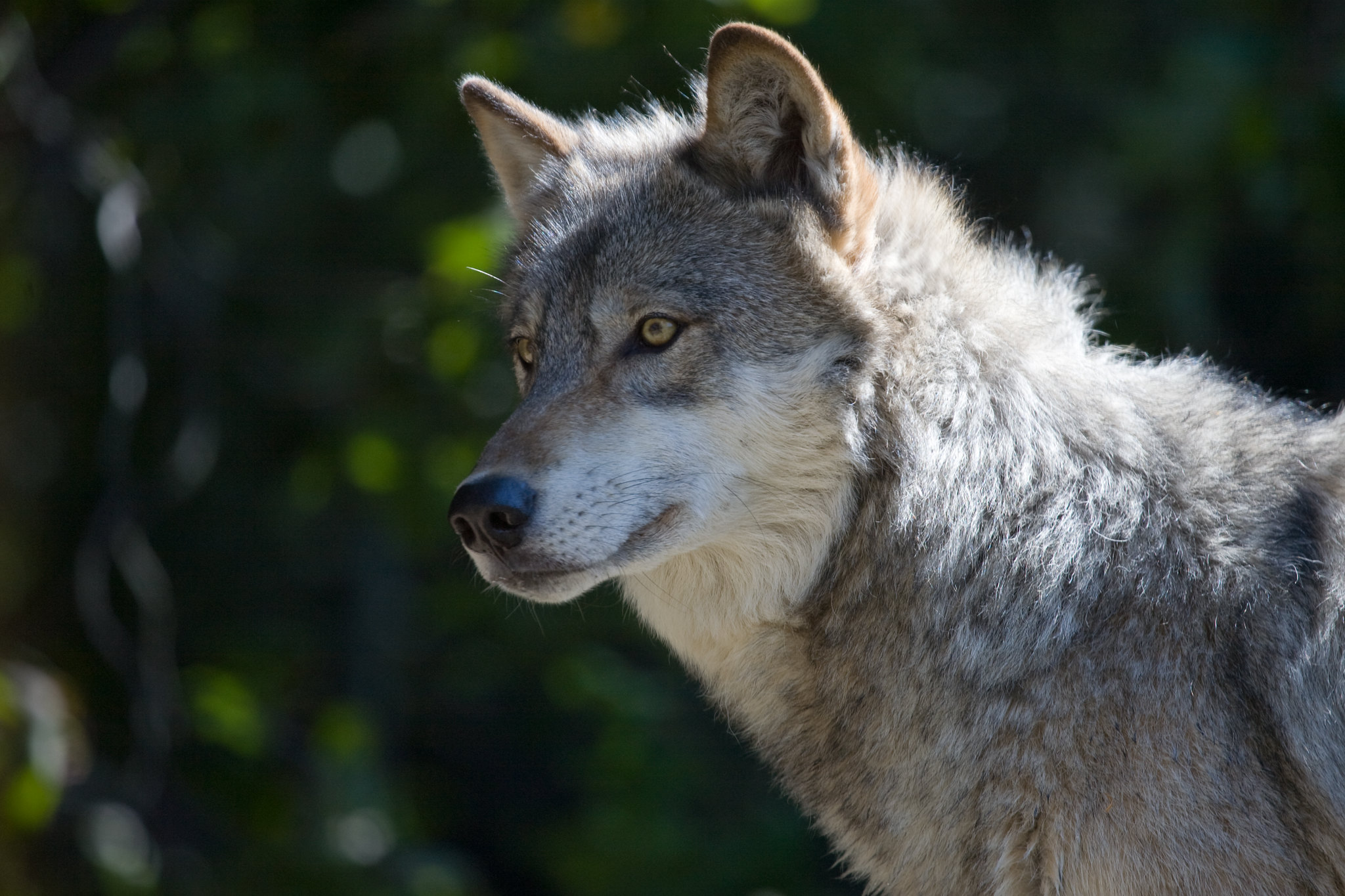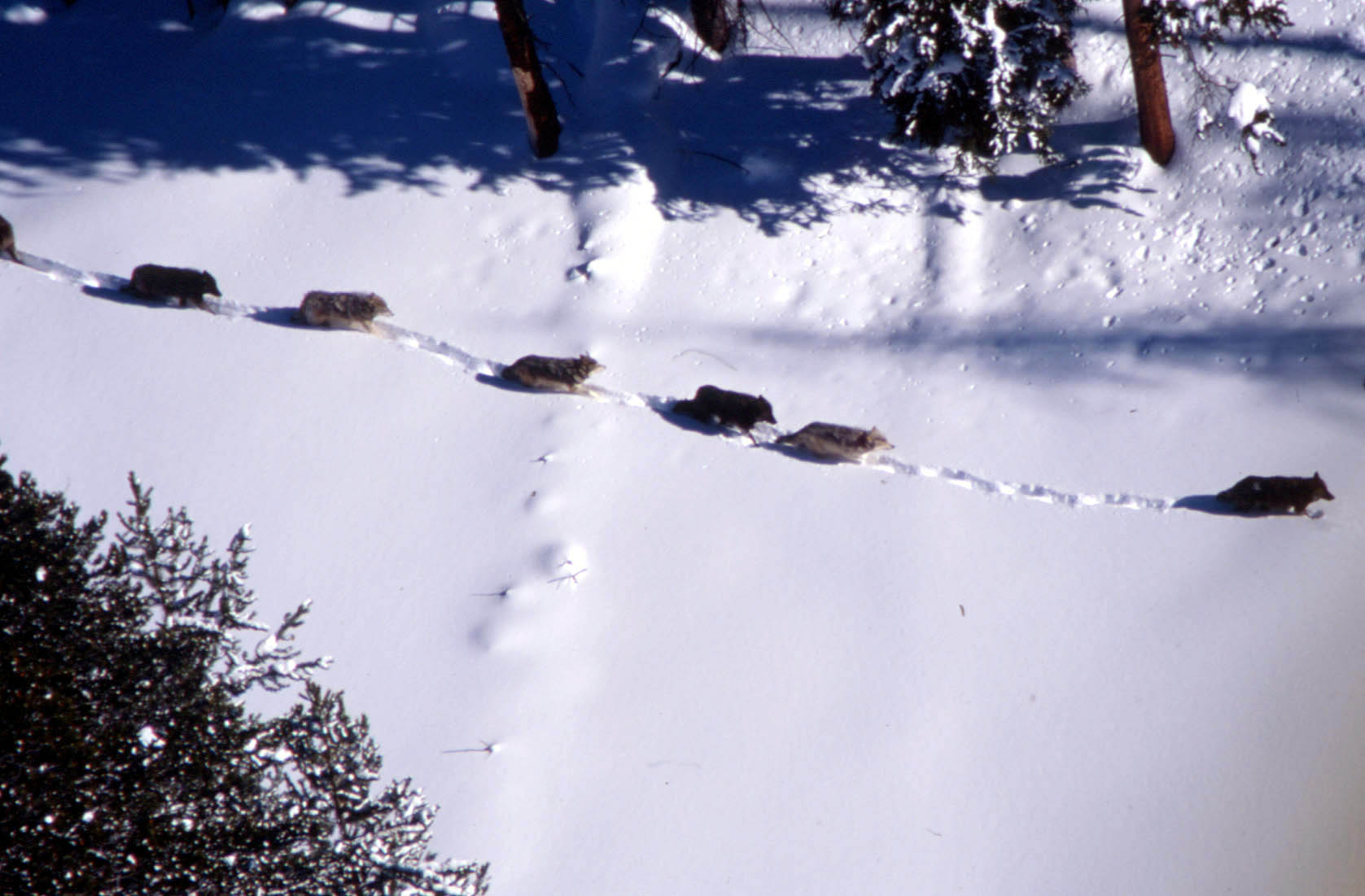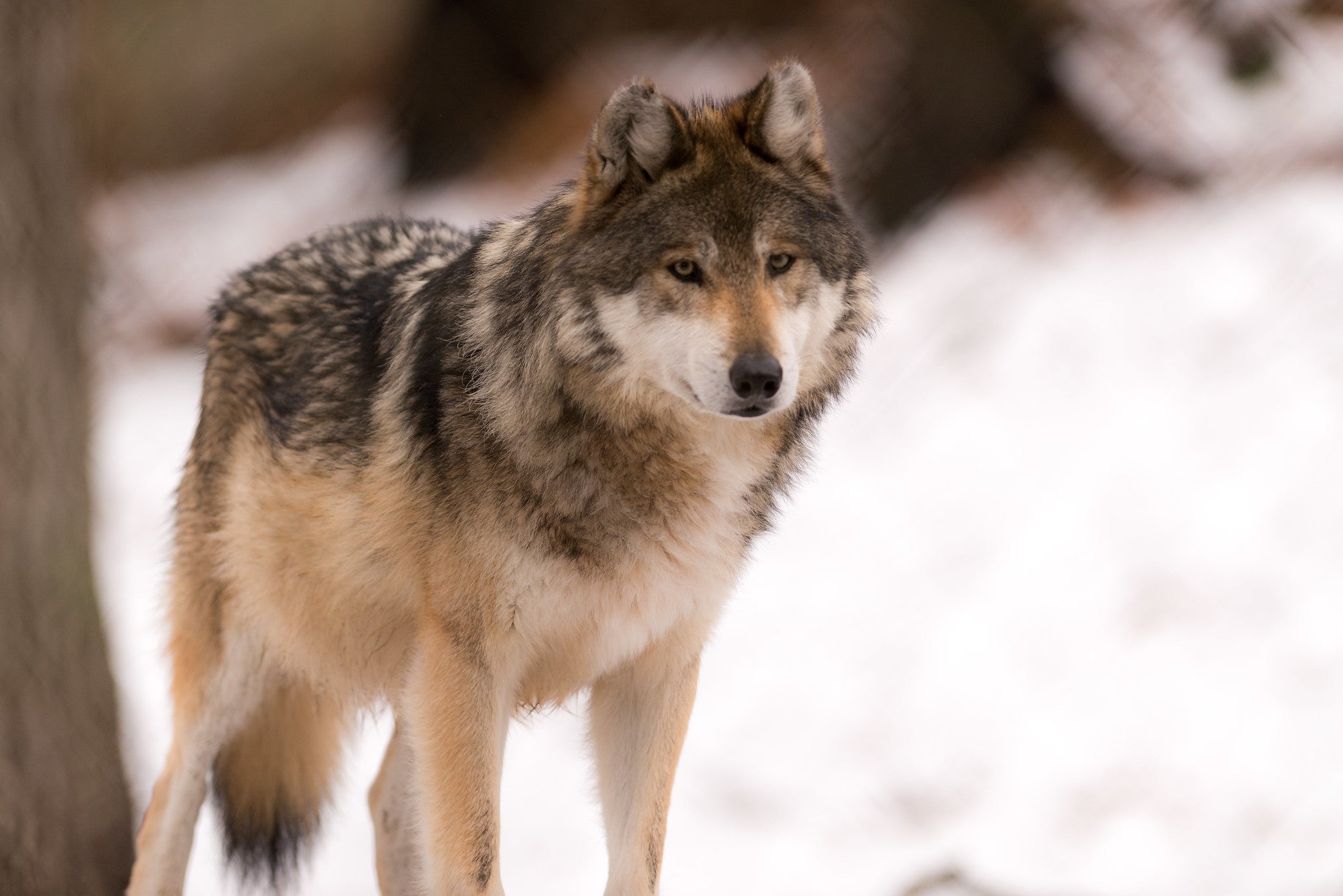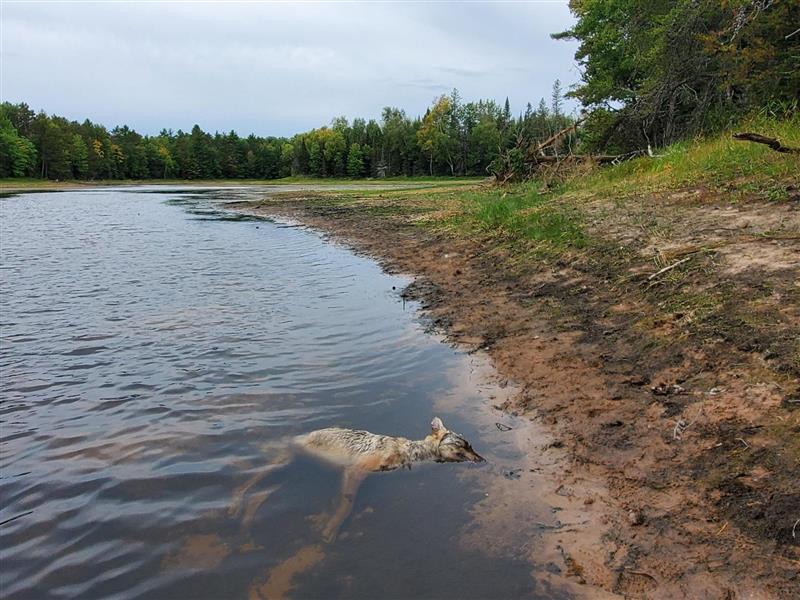A coalition of animal protection groups is suing to stop Wisconsin’s fall wolf hunt, arguing that the state law that mandates a hunt is unconstitutional.
The lawsuit filed in Dane County Circuit Court by Animal Wellness Action, Friends of the Wisconsin Wolf and Wildlife, Project Coyote and other groups seeks to overturn state law that requires a wolf hunting season when the animal isn’t listed as a federal endangered species. The groups also want a judge to reverse the 300-wolf quota set by the Natural Resources Board for the upcoming November hunt, and they want to prevent the Wisconsin Department of Natural Resources from issuing licenses for the fall wolf season.
“Wisconsin’s Natural Resources Board treats its role as a promoter of hunting opportunities for trophy hunters, hunters, and trappers rather than as the steward of a rare species that improves the health of our state’s ecosystem and reduces the impacts of prey species, such as deer on forest over-browsing, and even traffic accidents,” said Paul Collins, Wisconsin state director of Animal Wellness Action. “These people have lost their way, and our lawsuit is designed to check their reckless and overreaching actions.”
Stay informed on the latest news
Sign up for WPR’s email newsletter.
The Natural Resources Board recently voted 5-2 to approve a wolf harvest quota of 300 wolves despite the recommendations of its own wildlife officials, who advised the board to set a quota of fewer than half that number for the fall hunt. The agency recommended a conservative quota due to uncertainty over the population’s response to the February wolf hunt.
In February, state-licensed hunters killed nearly double their 119-wolf quota, harvesting 218 wolves in less than 72 hours. State-licensed hunters split the quota with Wisconsin’s Ojibwe tribes, who can claim up to half the quota. Tribes have declined to harvest the animal because they view the wolf as a brother.
Wisconsin law requires the DNR to hold a wolf hunt each year from November through the end of February. Jessica Blome, an attorney with California-based Greenfire Law representing the groups, argued the state’s law mandating a wolf hunt conflicts with the public trust doctrine that ensures natural resources should be held in trust for all.
“It strips the agencies responsible for administering and protecting wildlife and ensuring their sustainability for future generations from their discretion to set a hunt or not set a hunt or set a quota that is science-based and defensible,” said Blome.
Wisconsin is the only state that mandates a wolf hunt and allows the use of hounds to hunt wolves.
Researchers have warned the board that the state’s wolf population could be drawn down to unsustainable levels with another hunt. A recent study by University of Wisconsin-Madison researchers concluded that hunters and poachers might have killed a third of the wolf’s population since the animal’s delisting.
The number of wolves in Wisconsin has grown from just 25 animals in 1980 to 1,136 wolves prior to the February wolf hunt, according to most recent estimates from the DNR. DNR staff say they were unable to provide a post-hunt population estimate this year since much of their monitoring data had been collected prior to the February hunt.
A DNR spokeswoman declined to comment on the lawsuit.
Hunters and farmers have seen increasing conflicts with wolves as their range has expanded. Luke Hilgemann, president and CEO of Kansas-based Hunter Nation, said the lawsuit is another desperate attempt by anti-hunting groups to kick hunters out of the woods. He rejected claims that Wisconsin’s law mandating a wolf hunt is unconstitutional.
“It was, again, something that was done as a management tool and a continuation of the wolf plan that we have, that exists here in Wisconsin, that says, again, we want to have this species as part of our ecosystem,” said Hilgemann. “But it needs to be managed just like all other predator populations here in the state.”
Hunter Nation and other hunting groups have supported a higher quota that would bring the state’s population in line with a management goal of 350 wolves laid out in the state’s existing wolf management plan. Critics say the plan, which was first written in 1999 and last updated in 2007, is not based on the best available science and vastly outdated.
Hunter Nation is also backing the board’s chair Fred Prehn in a separate lawsuit brought by Wisconsin Attorney General Josh Kaul that seeks to remove him. Animal protection groups targeted Prehn in their lawsuit, accusing him of “squatting” in his seat past the expiration of his term. They argue the fall quota should be invalidated because the process was unfair and controlled by Prehn, who they contend has no legal right to sit on the board.
Prehn has refused calls for him to step down after Democratic Gov. Tony Evers appointed Sandy Naas to the board on April 30. He has said a Wisconsin Supreme Court ruling allows him to remain in his seat until Evers’ nominee is confirmed by the Republican-controlled Senate, which has not yet held a confirmation hearing. The Milwaukee Journal Sentinel reported Monday that emails show Prehn, who was appointed by former Republican Gov. Scott Walker, consulted with Republicans about his decision to remain on the board.
State-licensed hunters killed 528 wolves in the three seasons a hunt was held in Wisconsin before a federal judge’s ruling placed the animal back on the endangered species list in 2014. In all three seasons, hunters reached the quota before the end of December.
Animal protection groups believe they can halt the fall wolf hunt because state law calls for a single annual season. The season that begins on Nov. 6 would mark the first time Wisconsin has held two hunts in a single year after Hunter Nation sued to force a hunt in February. The DNR had previously planned to hold a hunt this fall.
Hunters sued over fears that President Joe Biden’s administration may place the animal back on the endangered species list before November and lose a chance to harvest the wolf. The Biden administration recently signaled that it would uphold the Trump administration’s decision to delist the wolf despite calls to restore protections for the animal.
Wisconsin Public Radio, © Copyright 2025, Board of Regents of the University of Wisconsin System and Wisconsin Educational Communications Board.





